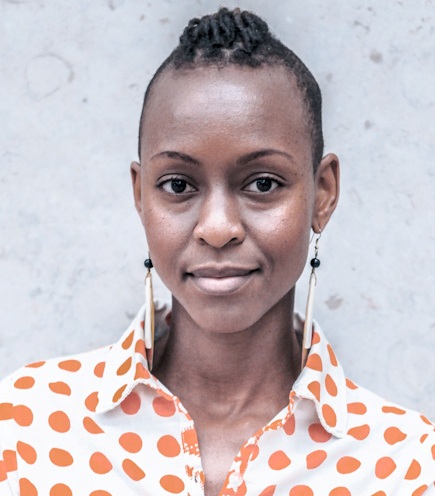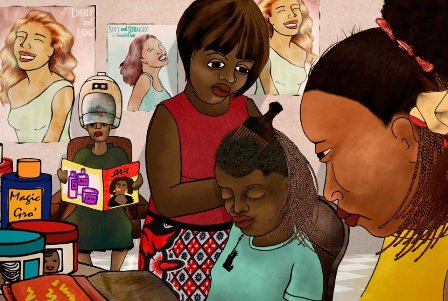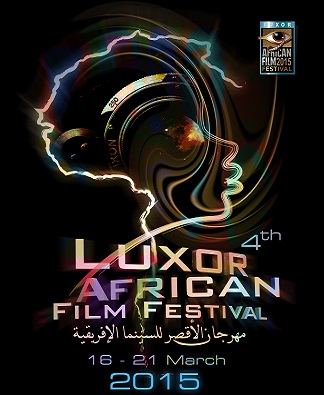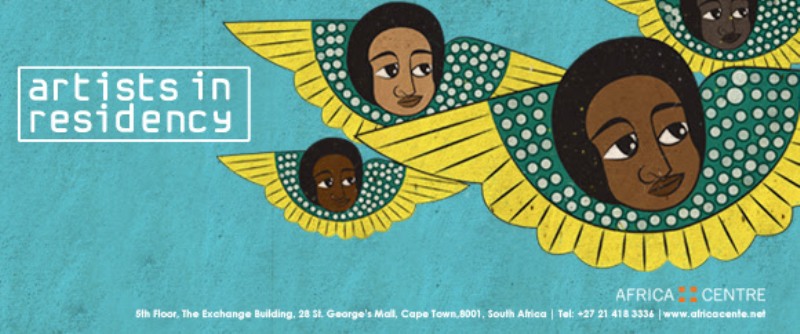By Daisy Nandeche Okoti
Published March 31, 2013
 Perhaps the most misleading thing about the experimental film YELLOW FEVER by Kenyan Ng’endo Mukii is the title. The first thing that comes to mind when one sees or hears this title is the disease with the same name. But no. This is not the tropical disease known as yellow fever.
Perhaps the most misleading thing about the experimental film YELLOW FEVER by Kenyan Ng’endo Mukii is the title. The first thing that comes to mind when one sees or hears this title is the disease with the same name. But no. This is not the tropical disease known as yellow fever.
Told through interviews with both the young and the old and observation and personal perceptions of the writer and narrator, the seven-minute YELLOW FEVER that has won the Best Short Film prize at the inaugural African Magic Viewers’ Choice Awards (AMVCA) in March 2013 and the Best Animation Film at the Kenya International Film Festival in 2012 attacks the ‘elephant’ called skin-bleaching that has slowly but surely taken a seat among African women.
Among the questions the 2012 production raises include the necessity of skin bleaching, the justification for skin-lightening, the perceptions of society on skin-lightening, and the effects of skin-bleaching on the user. This film was screened and discussed during the 64th Lola Kenya Screen film forum in Nairobi, Kenya on March 25, 2013.
 YELLOW FEVER, written and directed by Mukii who is a graduate of Royal College of Art in London in the United Kingdom, has been nominated for the award of The Best Short Film at the 9th Africa Movie Academy Awards that takes place on April 20, 2013 in Yenagoa, Bayelsa State, Nigeria. The film is competing against DEAD RIVER by Tim Huebschle (Namibia), ELEGY FOR A REVOLUTIONARY by Paul van Zyl (South Africa), KWAKU ANANSE by Akosua Adoma Owusu (Ghana), NHAMO by Eunice Chiweshe Goldstein (Zimbabwe), BIG DADDY by Chris Ihidero (Nigeria), RELEASE by Sofia de Fay (South Africa) and BURNT FOREST by Zippy Kimundu (Kenya).
YELLOW FEVER, written and directed by Mukii who is a graduate of Royal College of Art in London in the United Kingdom, has been nominated for the award of The Best Short Film at the 9th Africa Movie Academy Awards that takes place on April 20, 2013 in Yenagoa, Bayelsa State, Nigeria. The film is competing against DEAD RIVER by Tim Huebschle (Namibia), ELEGY FOR A REVOLUTIONARY by Paul van Zyl (South Africa), KWAKU ANANSE by Akosua Adoma Owusu (Ghana), NHAMO by Eunice Chiweshe Goldstein (Zimbabwe), BIG DADDY by Chris Ihidero (Nigeria), RELEASE by Sofia de Fay (South Africa) and BURNT FOREST by Zippy Kimundu (Kenya).
Skin-bleaching is a menace society has to overcome. The association of white-skinned people with superiority and ‘true beauty’ as demonstrated in this film is an issue that should be examined closely in the quest to make black women accept themselves and appreciate who they are without any apology.
In an interview with Joshua Kogan at Local Flux, Mukii admits that indeed, we are decades away from having African beauty exalted in its true sense. She says: “When I interviewed my niece for my film, her responses were so clear and unfaltering. I realised she had no doubt or any perceivable resistance to what she was saying. She was just stating the facts of her desires in the same way she would if she wanted a triple-tiered-pink-icing-Barbie-cake for her birthday. It’s just a fact of life that is not openly confronted. I recently went to the Africa Fashion Week London where thousands of people gathered to celebrate African creativity and beauty. However, within the Black Beauty magazine given out in the goody bags, I counted nine skin whitening adverts, which left me wondering “what was the point?” Clearly an African woman’s beauty, (just like any other woman’s) is a matter of commercial importance, which often trumps good-hearted hopes for holistic acceptance and celebration of the female form.”
RELATED: German Classic Film Challenges Movie Buffs in Nairobi to Put Film on their Daily Agenda
 Ng’endo Mukii’s observation on the desire by Africans to be white is echoed by Fatima Dike, a South African playwright who argues, “I consider myself African. But this is not a general coloured perception. In fact, a lot of coloured people deny their African heritage. There is aspiration towards white beauty although it is not overtly stated. We furiously straighten our hair so that you cannot see the African kink; we still consider a straighter nose, thinner lips and lighter skin as beauty. And that is the aspiration. Apartheid still lives with us.”
Ng’endo Mukii’s observation on the desire by Africans to be white is echoed by Fatima Dike, a South African playwright who argues, “I consider myself African. But this is not a general coloured perception. In fact, a lot of coloured people deny their African heritage. There is aspiration towards white beauty although it is not overtly stated. We furiously straighten our hair so that you cannot see the African kink; we still consider a straighter nose, thinner lips and lighter skin as beauty. And that is the aspiration. Apartheid still lives with us.”
Those two passages describe an African society that still aspires to ‘whiteness’ and if the struggle against skin bleaching is to be won, then films such as YELLOW FEVER that address that subject should be made easily available throughout the continent via screenings and discussions.
Other experimental shorts written and directed by Mukii include HASIDI and MASKS both of which have her trademark technical animations. HASIDI is about relationship issues which she presents using the changing situations of the human life.
RELATED: 57th Lola Kenya Screen Film Forum Wows Participants with Children’s Creativity
Ng’endo Mukii was the filmmaker in the spotlight during the 64th LKSff, a specialised film screening, discussion and networking platform for practitioners in the eastern Africa audiovisual media sector that critiques, encourages and explores ways of integrating film production in eastern Africa with other socio-cultural and economic sectors in order to come up with a vibrant film industry.
The initiative of ComMattersKenya/ArtMatters.Info in collaboration with Goethe-Institut, LKSff has since December 2005 been running every last Monday of the month in the Nairobi CBD. This forum is often one of the first places where new films can be seen and new talent spotted.
RELATED: The National Film and Video Foundation of South Africa (NFVF) Appoints New Chief Executive Officer
LKSff is part of the Lola Kenya Screen (LKS) audiovisual media festival, skills-development programme and marketing platform for children and youth in the Great Lakes and Horn of Africa region.





